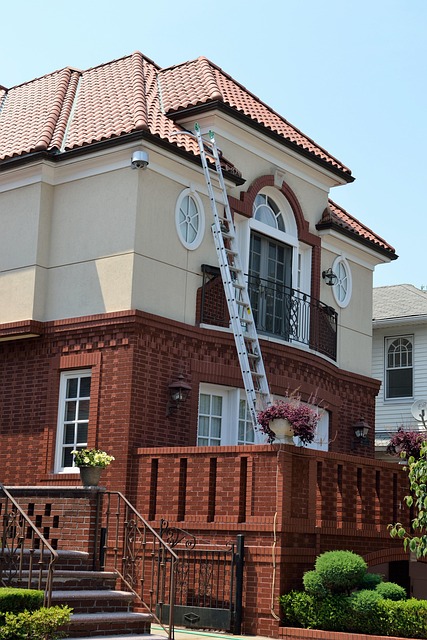Understanding local real estate laws empowers homeowners to negotiate repair requests fairly. Balancing cost and value strategically influences negotiation power. Using data and market trends, owners communicate effectively with contractors based on historical costs, distinguishing necessary repairs from cosmetic enhancements for mutually beneficial outcomes.
In the dynamic landscape of real estate, understanding negotiation leverage for repair requests is paramount for both homeowners and property managers. This article guides you through the essential steps to navigate these conversations effectively. First, we’ll explore your property rights and obligations, followed by strategies to assess repair requests objectively. We’ll also delve into leveraging data and market trends to secure better terms. By mastering these skills, you can ensure fair and cost-efficient resolutions for all parties involved.
Understanding Your Property Rights and Obligations

Before negotiating any repair requests, it’s crucial to understand your property rights and obligations in the real estate context. As a homeowner, you have specific expectations regarding the condition of your property, and understanding what constitutes acceptable maintenance is key. Familiarize yourself with local tenancy or property laws, which often outline the responsibilities of both landlords and tenants when it comes to repairs and maintenance.
This knowledge equips you to make informed decisions during negotiations. For instance, if a repair request involves structural issues or necessary updates, you may have leverage to demand timely action or even offer to contribute towards the cost based on your property’s value and your understanding of market rates. Additionally, being aware of your rights enables you to avoid unfair requests and fosters a fair and respectful negotiation process.
Assessing Repair Requests: Cost vs. Value

When it comes to repair requests in real estate, assessing the cost versus value is a delicate balance that can significantly impact negotiation leverage. Property owners must consider both the immediate financial outlay for repairs and the long-term value these fixes will bring to their property. For instance, while replacing old windows might be costly upfront, it could dramatically increase energy efficiency, enhancing the home’s appeal and resale value.
This evaluation is crucial as it enables owners to set reasonable repair requests. Demanding exorbitant costs for minor repairs may deter potential buyers or landlords, negatively impacting future sales or rental agreements. Conversely, asking for a fair price that aligns with the repair’s significance demonstrates wisdom and can foster positive negotiations. Ultimately, understanding this dynamic allows property owners to leverage their knowledge of repair value to achieve mutually beneficial outcomes in any negotiation.
Leveraging Data and Market Trends for Better Terms

In the dynamic landscape of real estate, negotiating repair requests becomes a strategic dance where data and market trends act as powerful leverage. Property owners armed with detailed maintenance records and up-to-date market analytics can demand better terms from contractors. By analyzing historical repair costs in comparable properties, owners can set fair and reasonable expectations, ensuring both quality workmanship and cost-effectiveness.
This informed approach allows for more productive conversations, enabling owners to navigate the negotiation process effectively. Understanding market trends empowers them to distinguish between necessary repairs and cosmetic enhancements, thus avoiding unnecessary expenses. Leveraging data becomes a game-changer, transforming repair requests from a simple transaction into a mutually beneficial dialogue where both parties emerge satisfied and with a clear understanding of their respective roles and responsibilities.






